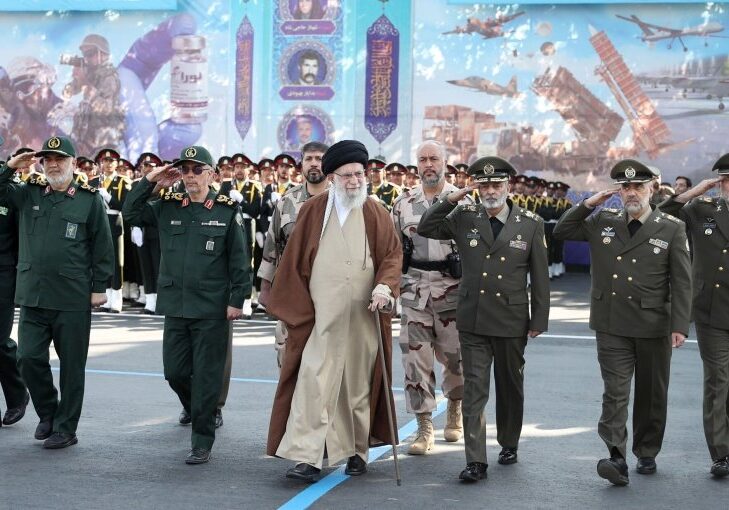Australia/Israel Review
The Earthquake
Dec 1, 2005 | External author
By David Makovsky
On Monday November 21, Israeli Prime Minister Ariel Sharon announced that he is bolting the Likud Party and forming a new Kadima (Forward) Party. The Knesset took a preliminary vote to dissolve itself. After some wrangling, a final date was set for elections on March 28, 2006. Sharon remains Prime Minister during the interregnum.
Rationale and Significance of the Move
Sharon dropped a political bombshell by leaving the party that he helped to form in 1973, thereby shattering the political status quo in Israel. Historically, third parties in Israel tend to begin with a sizzle but end with a fizzle – but Sharon’s experiment is unique; never has a sitting Israeli premier left the ruling party to form a new party. (In 1965, retired premier David Ben-Gurion left Labor to form the Rafi Party.)
Sharon is making the move because he feels the Likud apparatus – still roiling from Gaza disengagement – constrains his current line of actions and would constrain future policy initiatives toward the Palestinians. Specifically, a group of rebels within his party is blocking Sharon from passing a budget and has stopped him from naming two loyalists to ministerial portfolios. Moreover, a Likud Central Committee comprised of more hawkish activists will determine the next Knesset list, meaning Sharon will not be able to ensure broad parliamentary backing for any future initiative that he might choose to take in dealing with the Palestinians.
Sharon’s move could dramatically realign Israeli politics. A Likud split would likely make the alignment of Israeli political parties more closely mirror the views of the Israeli public on the core issue of relations with Palestinians. Currently, two-thirds of Israelis support a two-state solution with the Palestinians. A portion of this two-thirds belonged to the Likud Party and was represented by Sharon. Likud is more heterogeneous than the Labor Party, nearly all of whose members support a two-state solution. Likud is also backed by security-minded supporters and those who oppose Palestinian statehood a priori – who can be classed as hard bargainers and hardliners.
The lack of clarity within the Likud Party has diluted Sharon’s authority. Sharon believes he is personally responsible for attracting the high level of popular support that won 40 seats for the Likud in 2003 parliamentary elections. Yet the party’s more ideological activists believe that it was Likud’s opposition to territorial concessions that won such support. Both theses will now be tested, especially since many Sharon supporters within the party are bolting with the premier. Within minutes of Sharon’s announcement, 13 Likud parliamentarians agreed to follow Sharon, including prominent names such as Finance Minister Ehud Olmert and Justice Minister Tzippi Livni. There are also reports that Sharon will be joined by other prominent figures who are not serving in the Knesset.
Preliminary polls suggest that public support for the Likud will be halved, potentially marginalising a party that has dominated Israeli government for 20 of the last 28 years.
Sharon’s party could revitalise the political centre in Israel; the centre has been gutted by four years of terror and violence. Sharon would be flexible enough to form coalitions with other like-minded parties, including Yosef Lapid’s Shinui Party, and engage parties of the left and right after the elections. Sharon’s clarity could contribute to making the rival parties more distinct. Under new leader Amir Peretz, Labor will be more staunchly left-leaning on both the Palestinians and its social-democratic agenda. If Benjamin Netanyahu leads Likud, it could take a more uniformly right-leaning approach to the Palestinians and economic policy. While Netanyahu could win, at least seven candidates are expected to run for Likud Chairman in the wake of Sharon’s departure, including Defence Minister Shaul Mofaz and Foreign Minister Silvan Shalom.
Sharon’s Gamble
No third party has ever won an Israeli election. Sharon’s move is certain to dominate headlines, given his national popularity and the unprecedented nature of the move. However, questions will remain. Does Sharon have the organisational strength to field a new party with such short notice before March elections? With his son Omri, who helped spearhead past campaigns, now preoccupied with legal proceedings, who will head the drive? With enhanced judicial focus on campaign finance contributions and a system that favours existing parties over new ones, will Sharon be able to attract the resources needed to run a national campaign? Sharon was keen to say that his new party will include at least 14 of Likud’s 40 parliamentarians. This is a key figure; if one-third of the parliamentary faction bolts with him, Sharon will be entitled to air time and a portion of Likud’s campaign-finance allocation. Will Sharon’s list be too Ashkenazi to face Peretz, Labor’s first Sephardic candidate for premier? Can Sharon withstand Peretz’s economic critique? Apart from former Health Minister Haim Ramon, who has been the leading advocate for a fusion party and who announced that he will join Sharon, who else from Labor will do so?
David Makovsky is a senior fellow and director of the Project on the Middle East Peace Process at The Washington Institute © 2005 The Washington Institute for Near East Policy.
Tags: Israel






